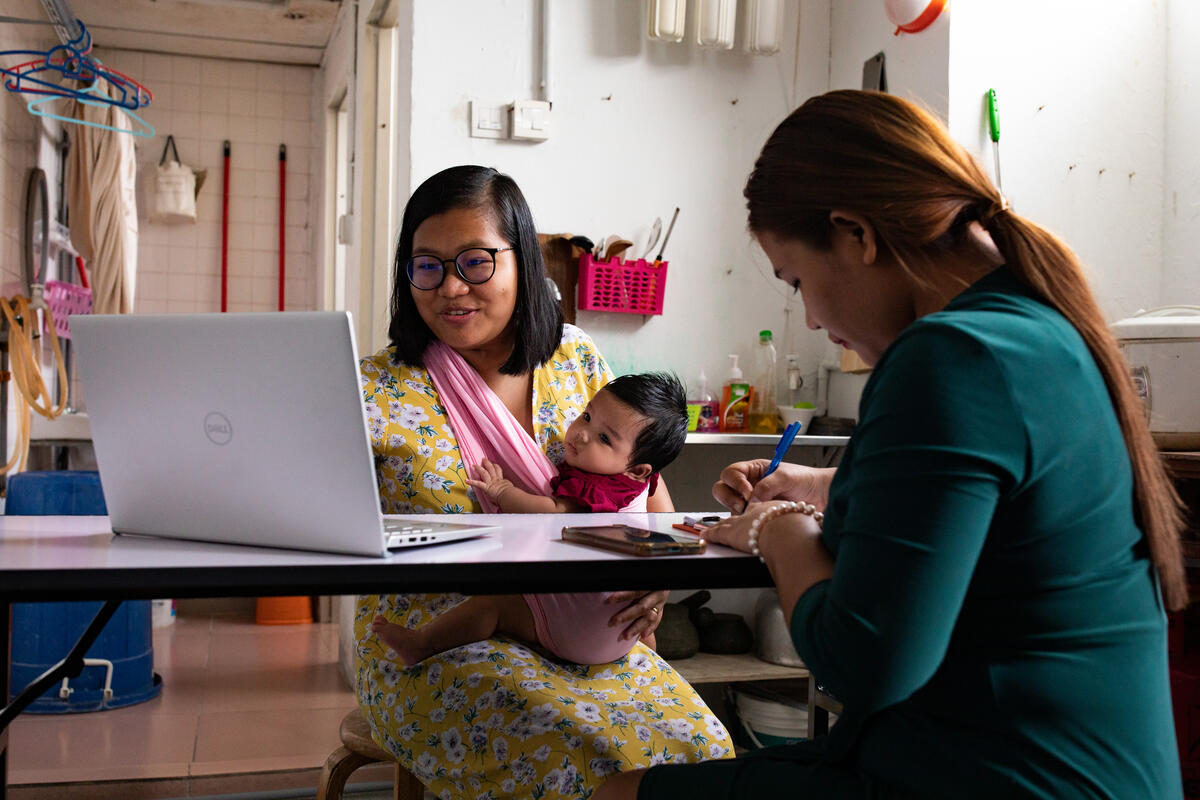UNHCR, QUALITAS launch affordable healthcare project for refugees
UNHCR, QUALITAS launch affordable healthcare project for refugees
KUALA LUMPUR, 6 October 2016 (UNHCR) – The UN Refugee Agency (UNHCR) and primary healthcare provider Qualitas Medical Group (Qualitas) today launched a nation-wide programme to provide affordable primary healthcare services for refugees. The first of its kind, the programme provides subsided and fixed-price primary healthcare for refugees all over the country.
“Life for refugees in Malaysia is very difficult. Because they are considered as illegal immigrants by law, they are unable to work legally in the country and are often unable to afford basic healthcare services,” said Richard Towle, UNHCR Representative in Malaysia.
“Early treatment at primary healthcare facilities and better education can prevent illnesses, if left untreated, would cost more to refugee families and Malaysia.”
“UNHCR warmly welcomes this collaboration with Qualitas to make primary care treatment more accessible for refugees in Malaysia, thereby improving the welfare of refugee families.”
The programme, ‘One Clinic, One Community, Qualitas Refugee Health Programme’, is a part of Qualitas’ social commitment to ensuring that refugees in Malaysia have access to primary healthcare services at a subsidised rate, at any one of its 80 clinics nationwide.
“As a home grown and proudly Malaysian organization, we believe that it is our duty to help those in our own country. By providing medical services to these marginalized communities, we also help to reduce the spread of infection from communicable diseases, therefore supporting the overall health of Malaysians” said Dato’ Dr Noorul Ameen bin Mohamed Ishack, Chairman and Managing Director of Qualitas.
“It is also our hope that this program will help address the primary healthcare issues faced by the refugee communities here in Malaysia. Therefore as part of our CSR initiative, Qualitas shall subsidise part of the cost to provide primary healthcare services to these communities” he added.
There are some 150,000 refugees registered with UNHCR today, with the majority coming from Myanmar. Refugees have access to public and private healthcare facilities in the country but factors including cost, fear of movement, and language limitations prohibit access to healthcare services.
“Partnerships with private healthcare providers like Qualitas is a good example of private sector involvement in reducing the burden of healthcare on the public healthcare system, while ensuring that marginalised communities get the healthcare they need,” said Towle.
“This programme creates affordable healthcare for an extremely vulnerable population, thus curbing any public health problems within this group.”
Attending the event was Lukes, the Chairman of a Pakistan refugee community organisation who viewed this programme as addressing some of the key problems faced by his community in accessing healthcare.
“There are many Qualitas clinics in many different areas, close to where our community lives. It is good for our people because they don’t have to pay so much money to travel to the clinics,” said Lukes.
“Travel is difficult because we are illegal, and we are always scared of arrests by authorities. Now, it is easier for my people to reach medical help. This is good, very good.”
Magnolia, a Myanmar Chin refugee community health worker at the launch spoke about how a programme like this helped return a sense of dignity to refugees.
“This is great because when we have to seek medical help, we are already so stressed. But now, Qualitas has said that they will treat all of us equally, like any other normal patient,” said Magnolia.
“You have no idea how that feels like, to get help from a kind, smiling doctor. It’s like your level of stress and sickness has been halved."






